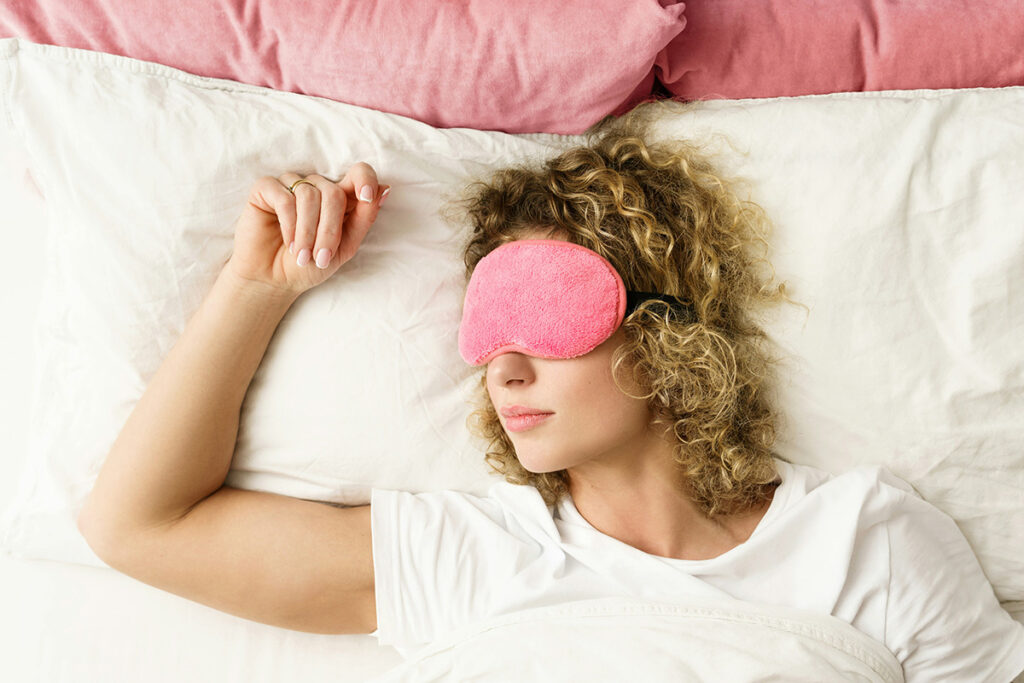Individual Counseling Insights From Westlake Village-Based Patricia McTague-Loft
Have you ever had a big event that you were either excited or anxious about? Something like a dream vacation or a major business presentation. With all the excitement of the big day coming up, there might be nothing more frustrating than lying in bed the night before the event and tossing and turning without a prayer of going to sleep.

The fact is that the Centers for Disease Control and Prevention (CDC) report that over a third of adults have trouble sleeping. Writing for Healthline, Arlene Semeco focuses on the CDC’s statistics and points out that trouble sleeping can do more than ruin a business presentation or steal your energy for the rigors of travel — “poor sleep may increase your risk of cardiovascular disease, type 2 diabetes, obesity, stress, anxiety and depression, impaired learning, memory and mood.”
The solution to this common problem is to develop habits and a lifestyle that help you sleep like a baby. Semeco offers a number of tips to do exactly that, including:
“Lower the room temperature.” A quick refresher in physiology 101 may help to understand how important this tip is. Your body has an optimum internal temperature, and that goes down at night — at least it should. If it doesn’t, then you’ll probably have trouble falling asleep. As Semeco says, “Maintaining a room temperature from 60-67 degrees F (15.6 – 19.4 degrees C), per the National Sleep Foundation, may help keep your body temperature low and promote sleep onset.”
“Set a sleep schedule.” Another physiological fact to consider is your body’s regulatory system — the circadian rhythm — which is your sleep-wake pattern over the course of 24 hours. Keeping that pattern consistent, going to bed at 11 pm, for example, and waking at 7 am every day is a good way to cue your body that it’s time to go to sleep or wake up.
“Practice yoga, meditation, and mindfulness.” It doesn’t take a research study to know that it’s hard to sleep when you’re stressed out. (Read our recent blog, Women and Stress: What To Watch For.) Healthy and proven ways to reduce your stress level include yoga, meditation and various mindfulness techniques.
“Avoid looking at your clock.” Anyone who wakes up regularly at some point during the night probably has a natural curiosity to know what time it is. Is it almost time to get up? Am I waking up at the same time every night? Semeco warns that you should fight the urge: “It’s common for people with insomnia to look at their clock every time they wake up. This is known as clock-watching or time monitoring behavior (TMB), which research suggests may increase brain stimulation and exacerbate anxious feelings of sleeplessness.” So… fight the urge to check the time, take some deep breaths and think pleasant thoughts instead.
“Avoid naps during the day.” Ah, one of life’s little joys is a little siesta after a nice big lunch. But that may not be a good thing if it affects your nighttime sleep. “While short naps may improve alertness and well-being,” Semeco says, “there’s mixed research about the effects of napping on nighttime sleep.” Although the research isn’t conclusive, if you’ve been having trouble sleeping at night then it’s worth experimenting for a month or so and see how you do if you forego the afternoon nap.
“Watch when and what you eat.” The research about this is more definitive. Eating less than an hour before bedtime increases your odds of waking up during the night. Not eating for two or three hours before bed is a good goal.
“Turn off all electronics.” With the rise in popularity of smartphones since 2008, more and more side effects of their use are being discovered. One quirk is that their screens emit blue light, which researchers are beginning to suspect suppresses your body’s natural production of sleep-inducing melatonin.
“Limit caffeine intake.” This is kind of a no-brainer. That same jolt of energy you enjoy with your morning coffee is energy that will either keep you awake or disturb your sleep in the middle of the night.